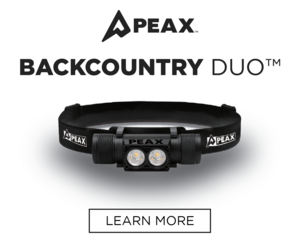Winter Wonderlands: Essential Tips for Planning Your Cold-Weather Camping Trip
If you're someone who loves the thrill of exploring the outdoors, why let a little snow and ice dampen your adventurous spirit? Winter camping offers a unique experience, transforming familiar landscapes into magical winter wonderlands. It's all about embracing the cold, enjoying the serene tranquility, and creating heartwarming memories around a campfire. However, winter camping is not for the faint-hearted. It requires meticulous planning, the right gear, and an understanding of how to stay safe and warm in potentially harsh conditions. But don’t let Jack Frost scare you. This comprehensive guide will equip you with essential tips and tricks to make your cold-weather camping trip an unforgettable experience. Winter camping can be very rewarding, offering a sense of peace and tranquillity that's hard to find in the bustling summer season. Imagine waking up to a pristine white landscape, with the glow of the early morning sun reflecting off the snow and so quiet you could hear a pin drop. But it's not just about the snow; it's about challenging oneself, pushing one's limits, and embracing the beauty of nature in all its forms.
Winter camping presents a set of unique challenges that even the most seasoned summer campers might find daunting. The fluctuating temperatures and weather conditions, the limited daylight hours, and the added weight of winter gear can all be quite overwhelming. The first hurdle is the cold. Temperatures can drop significantly at night, and staying warm becomes a crucial survival skill. You'll need to learn how to layer your clothing and choose the right gear to retain body heat. It's also essential to understand how to prevent and recognize the signs of hypothermia and frostbite. Another challenge is navigation. With the snow covering the landscape, familiar landmarks might be hard to recognize, making it easy to lose your way. It's crucial to have a reliable navigation system and understand how to use it. Also, the snow can make otherwise easy trails quite challenging. It's important to learn how to walk in snowshoes or crampons and understand how to navigate safely in snowy and icy conditions.
The right gear can make a world of difference in your winter camping experience. It's not just about comfort; having the right equipment can be a matter of life or death in extreme conditions. Your tent is your home away from home, and in winter, it's your primary source of shelter. Choose a four-season tent designed to withstand harsh winter conditions. These tents are made of heavier, more durable materials and have a dome-shaped design to shed snow. A good quality sleeping bag is a must. Opt for a bag rated for temperatures lower than what you expect to encounter. Look for one with a draft collar, which is a tube of insulation that wraps around your neck to prevent heat loss.
Location is everything when it comes to winter camping. You'll want a spot that's safe, accessible, and offers some protection from the elements. Look for a flat and elevated location. This can prevent you from being caught in a flash flood if there's a sudden snow melt. Also, an elevated location will be less likely to collect cold air at night. Consider the direction of the wind. Setting up your campsite with the door facing away from the prevailing wind can help reduce the amount of cold air that enters your tent. Also, try to find a spot with natural windbreaks, like a stand of trees.
Preparation is key, period. From planning your route to packing your gear, every detail counts. Study the weather forecast and know what to expect. This will help you pack appropriately and prepare for potential challenges. Also, familiarize yourself with the area where you'll be camping. Knowing the terrain and potential hazards can help you navigate safely and efficiently. Pack your gear strategically. Keep your most essential items within easy reach and protect sensitive equipment from the cold. Also, remember to pack plenty of high-energy food and water. Staying hydrated and well-fed is very important in cold weather.
Staying warm is a priority when camping during the winter. Here are some clothing and gear tips to help you retain heat and stay comfortable. Dress in layers. This allows you to adjust your clothing to match the temperature and your activity level. Start with a moisture-wicking base layer, add an insulating middle layer, and finish with a waterproof and windproof outer layer. Keep your extremities warm. Your head, hands, and feet are more susceptible to heat loss. Wear a hat, gloves, and warm socks to protect these areas.
Safety should always paramount when camping, especially in winter. Here are some safety tips to help you stay safe and enjoy your winter camping trip. Always let someone know your plans. Share your route, intended campsite, and estimated return time. In case of an emergency, this information can be vital. Learn the signs of hypothermia and frostbite and know how to respond. Hypothermia can occur when your body loses heat faster than it can produce it, while frostbite is an injury caused by freezing of the skin and underlying tissues.
Winter camping is not just about survival; it's also about having fun. There are plenty of activities to enjoy in the snow. Snowshoeing is a great way to explore the winter landscape. It's easy to learn and can be a lot of fun. You can also try cross-country skiing or snowboarding if you're up for a more challenging adventure. Building a snowman or having a snowball fight can be a fun way to spend time with family or friends. And at the end of the day, there's nothing quite like sitting around a campfire, roasting marshmallows, and sharing stories.
There are plenty of resources available to help you plan and prepare for your winter camping trip. From books and online guides to workshops and outdoor clubs, you can find a wealth of information and advice. Look for books and guides that focus specifically on winter camping. They can provide detailed information on gear, safety, and techniques. Online forums and blogs can also be a great source of tips and advice from experienced winter campers. Consider taking a winter camping workshop or joining an outdoor club. These can provide hands-on training and the opportunity to learn from experienced campers. Plus, it's a great way to meet like-minded people and maybe even find a camping buddy.
Embracing the Winter Wonderland Winter camping is a unique and rewarding experience. It offers a different perspective on the great outdoors, transforming familiar landscapes into stunning winter wonderlands. It's about embracing the cold, challenging yourself, and finding joy in the simple things, like a cup of hot cocoa by the campfire or the crunch of snow under your boots. So, don't let the cold deter you. With the right preparation, gear, and mindset, winter camping can be an extraordinary adventure. So go on, embrace the winter wonderland, and create unforgettable memories. After all, the world is yours to explore, no matter the season.
Please support The OutdoorsNW by subscribing today!
You may also like:
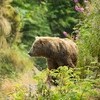

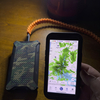

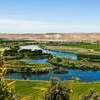

.png)

 Loading...
Loading...
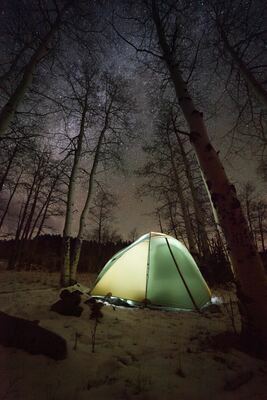
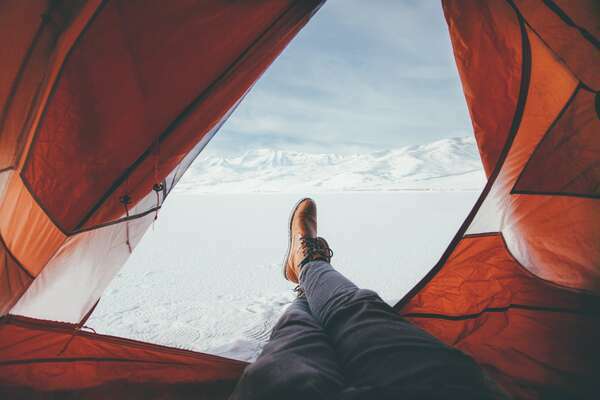
.jpg)
